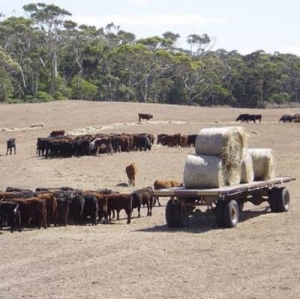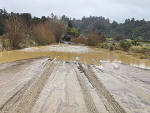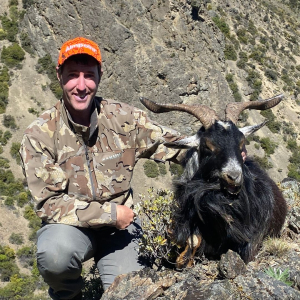Stock prices have tumbled and feed values are starting to climb as dry becomes drought in the east of the South Island.
An onshore drizzle brought a few millimetres of relief last week but after six months with less than half normal rainfall, a serious soak’s needed to get grass growing, not to mention winter feed crops which badly need a drink.
Even those with irrigation aren’t immune; water restrictions are spreading and some schemes have stopped already.
One of the worst affected is Opuha Water (OWL) in South Canterbury with the foothills feed lake at its lowest for January in 16 years operation.
About a quarter of OWL’s 16,000ha is on total stop, some of it since new year, and the balance is on 50% restriction. Chief executive Tony McCormick says unless there’s a deluge in Opuha’s headwaters soon, with only 25% of lake storage left the water will run out for all by February 28.
“In 2001 during the hydro [power] crisis the lake got to its lowest, and there was one other time that it was lower than now but again that was much later in the season.”
Once all irrigation stops, releases from the dam will be matched to inflows, so it’s likely the river downstream will drop dramatically. As of last week it would have been at 2.7 cumecs but for lake reserves augmenting the flow to 3.5 cumecs, explains McCormick.
He believes a season like this highlights the need for more access to alpine water in South Canterbury; the Waitaki-fed Morven and Glenavy scheme in the region’s extreme south, and the newly commissioned Rangitata South in the north, fare much better.
In North Otago it’s equally dry but again the Waitaki-fed irrigation schemes have so far avoided restrictions. Moving south, barring the Clutha, most other out-of-river takes in Otago have been restricted for months, and total stops are imminent if not already in place.
“We’re on a self-imposed one-day-in-four roster so the river doesn’t go below minimum flows,” Lyndon Strang of the Kakanui Irrigators Collective told Rural News last week.
The 30 or so farmers who draw from the river have been on some restriction since November and Strang says he can’t recall it ever having been so dry, so early.
“We’ve still got the bigger part of summer to go and February is traditionally a hot month here. Every day that goes by, especially the hot ones, means there’s less coming in the top of the river.”
A cold spring saw a lot less baleage and silage put away and availability of alternatives such as barley is also a concern. “A lot of dryland crops have not done well at all.”
Federated Farmers North Otago president Richard Strowger echoes that.
“We just didn’t have a spring and there wasn’t a lot of supplement made…. How much this drought will bite will depend on the autumn. Winter feed crops are very poor, especially those which were just sprayed out and drilled and didn’t go through a fallow to accumulate moisture.”
Most sheep and beef farmers in the region acted early to stave off the immediate shortfall in feed, offloading cull ewes and lambs, so for now there’s no need for a drought declaration, he believes.
“Just at the moment we’re sitting OK. It’s the long-term effect that’s the concern.”
Strowger’s counterpart in South Canterbury, Ivon Hurst, also believes there’s no need for a ministerial drought declaration yet, even though “most of the criteria for one are already there”.
A drought committee of industry representatives and advisors was formed prior to Christmas and following a meeting circulated advice on mitigation measures to Feds’ members and posted it in a local newspaper.
Hurst says another meeting is scheduled for January 28 but if need be that could be pulled forward. “If we have a week of nor’west then we’d need to step in and call it earlier.”











